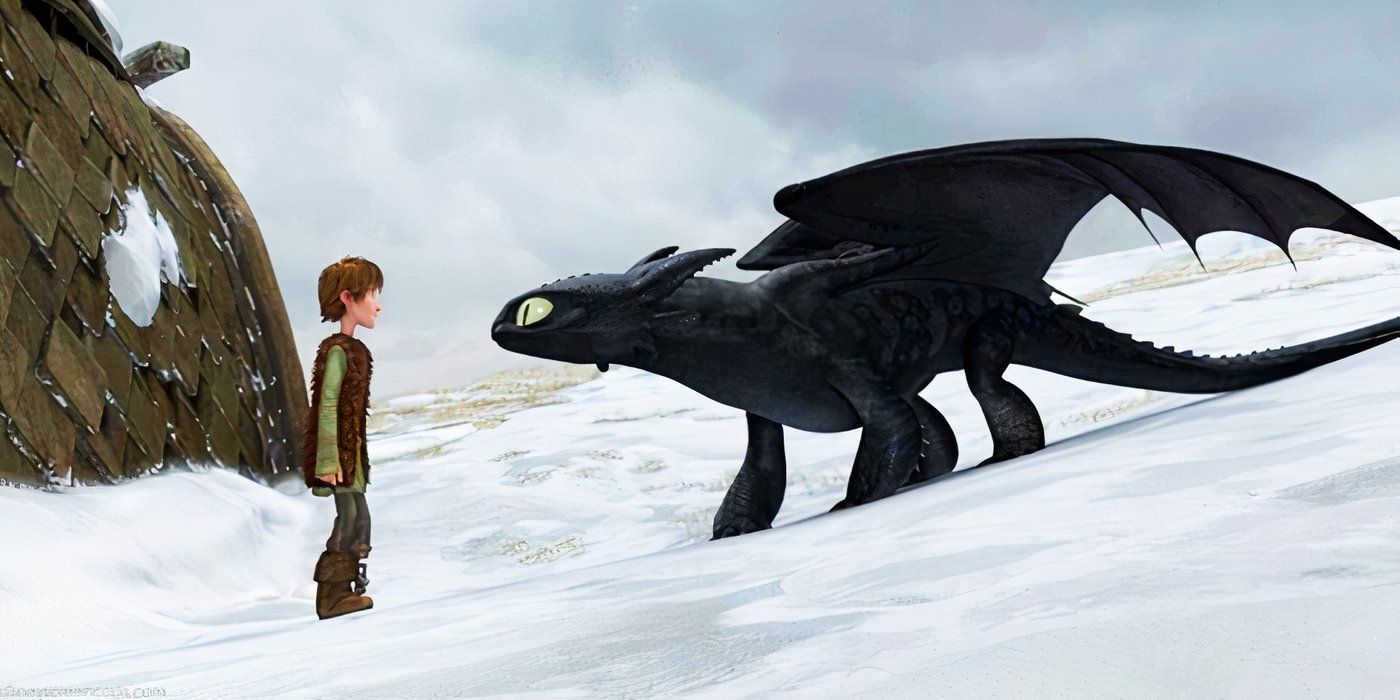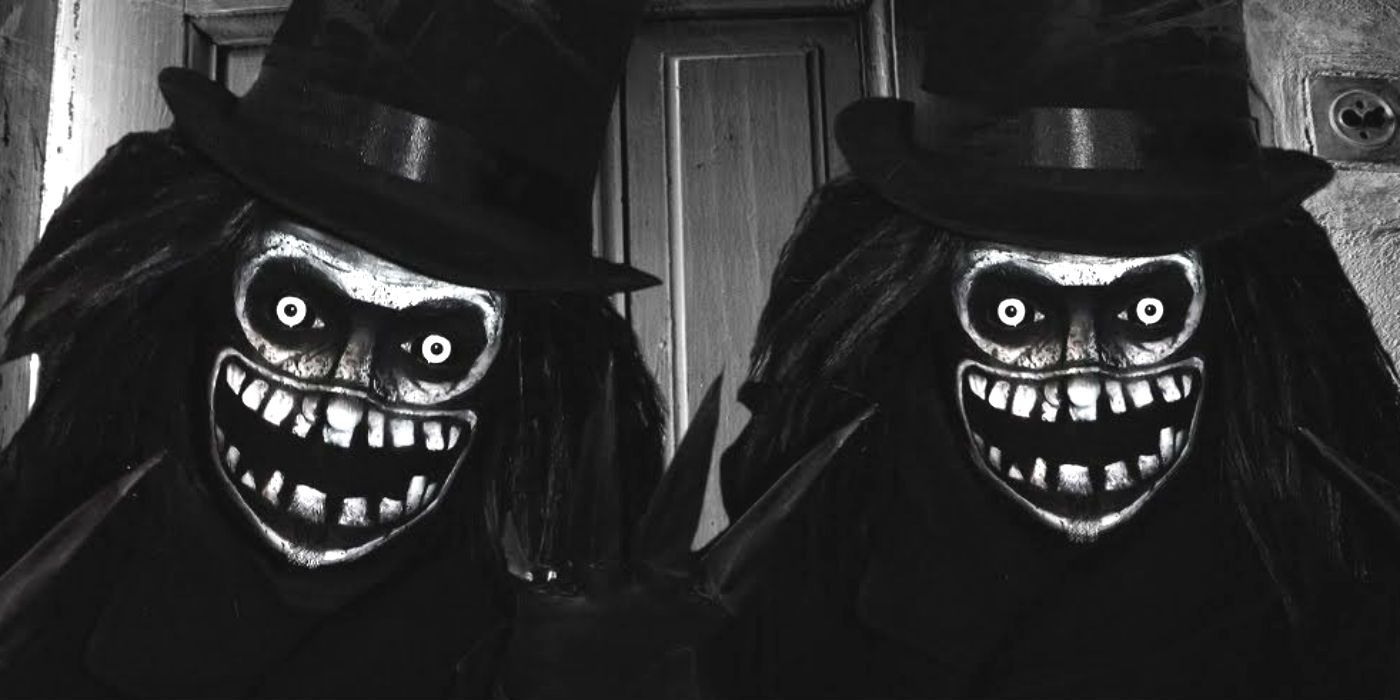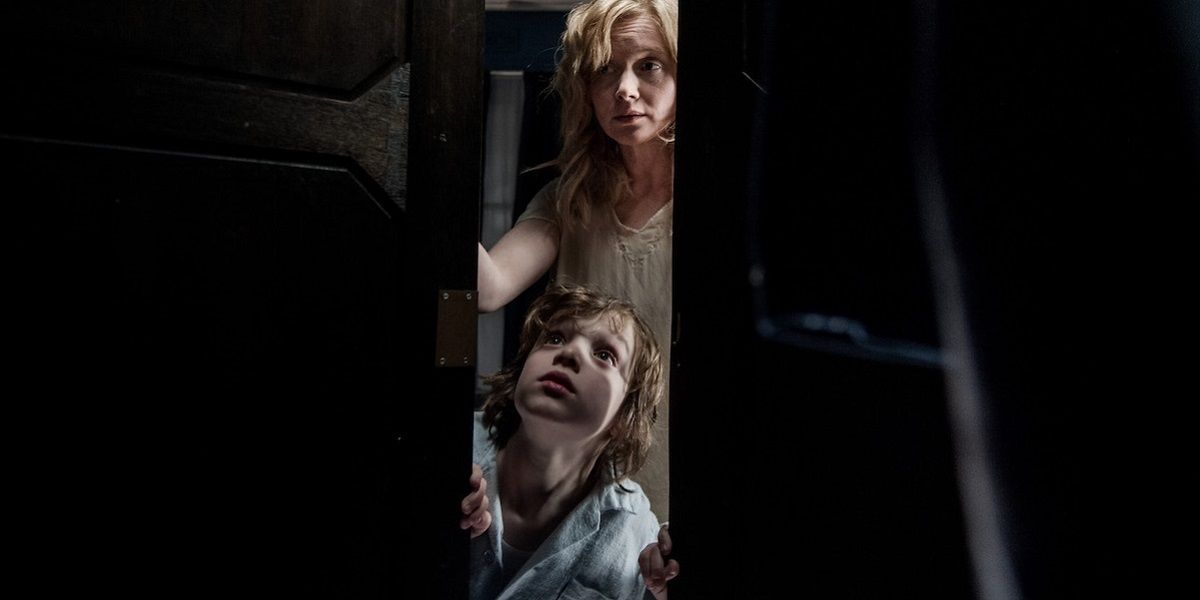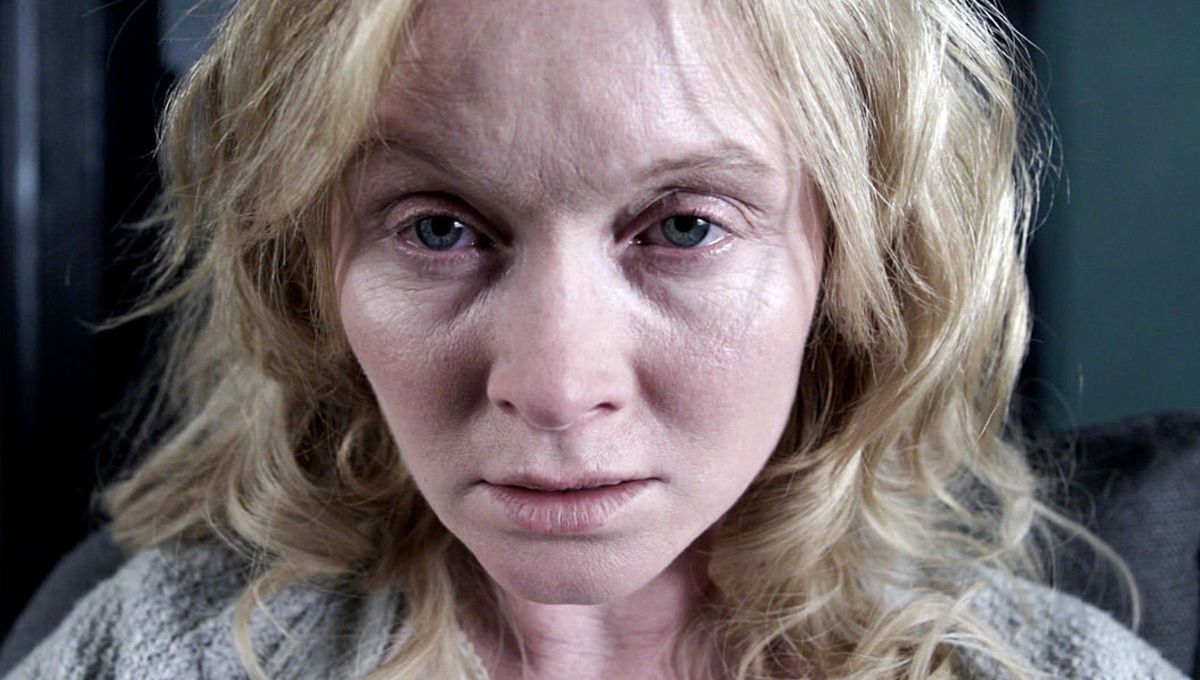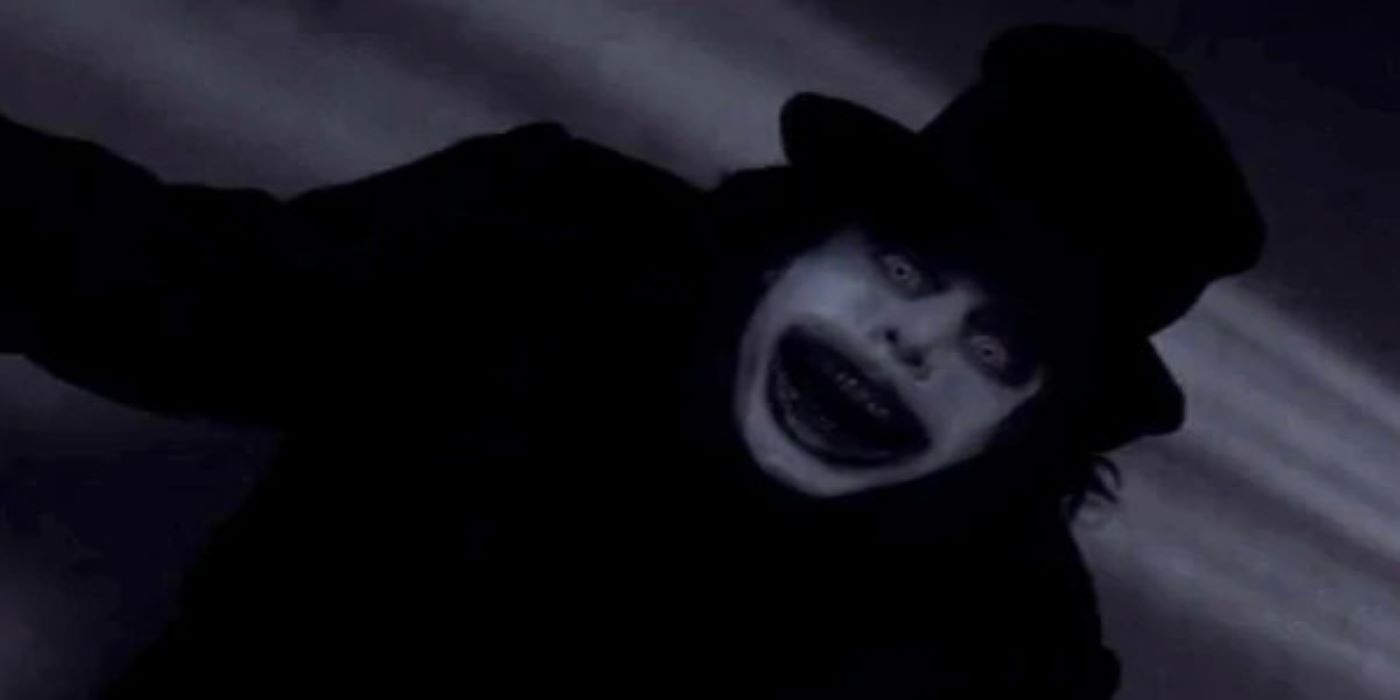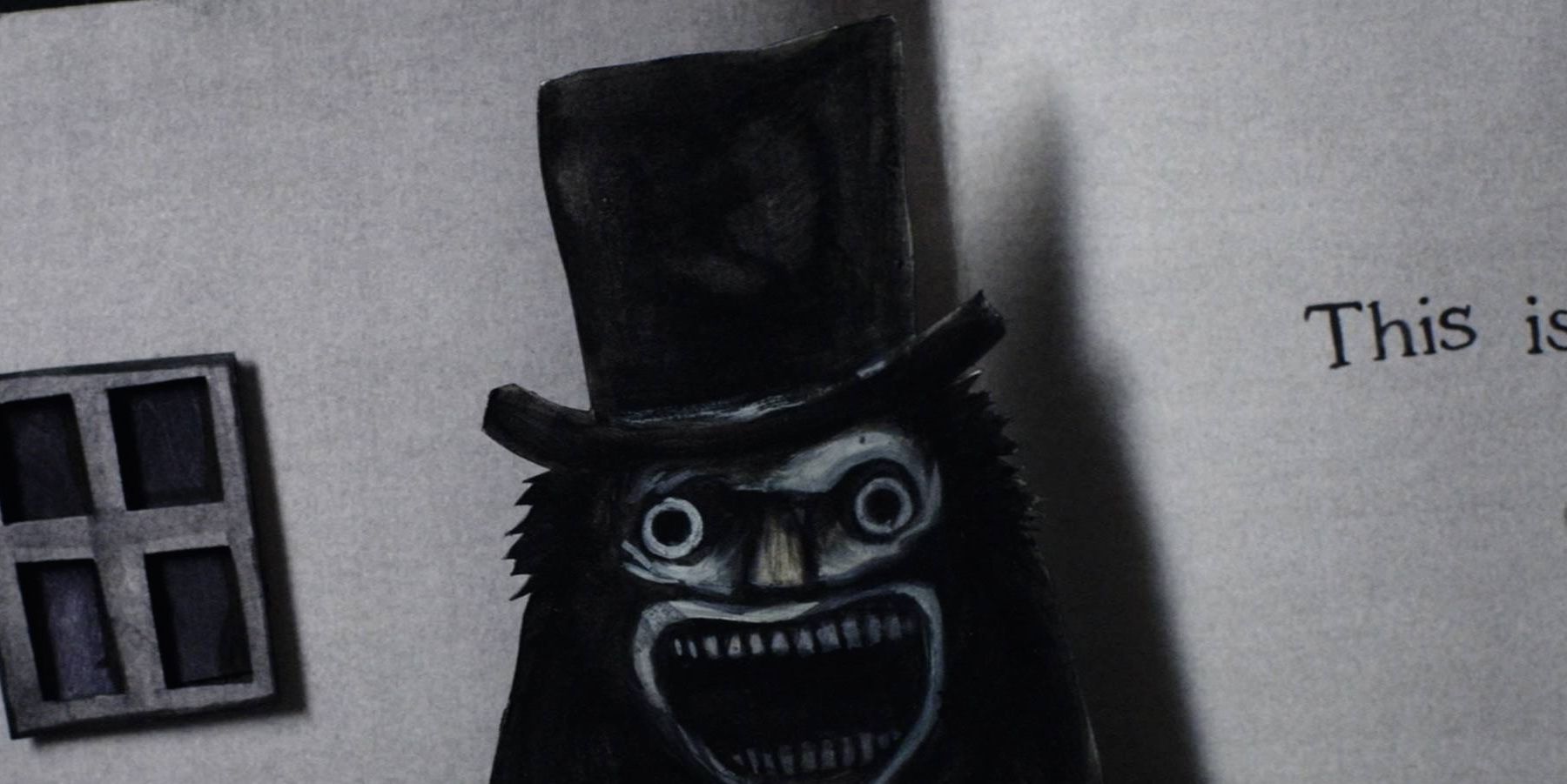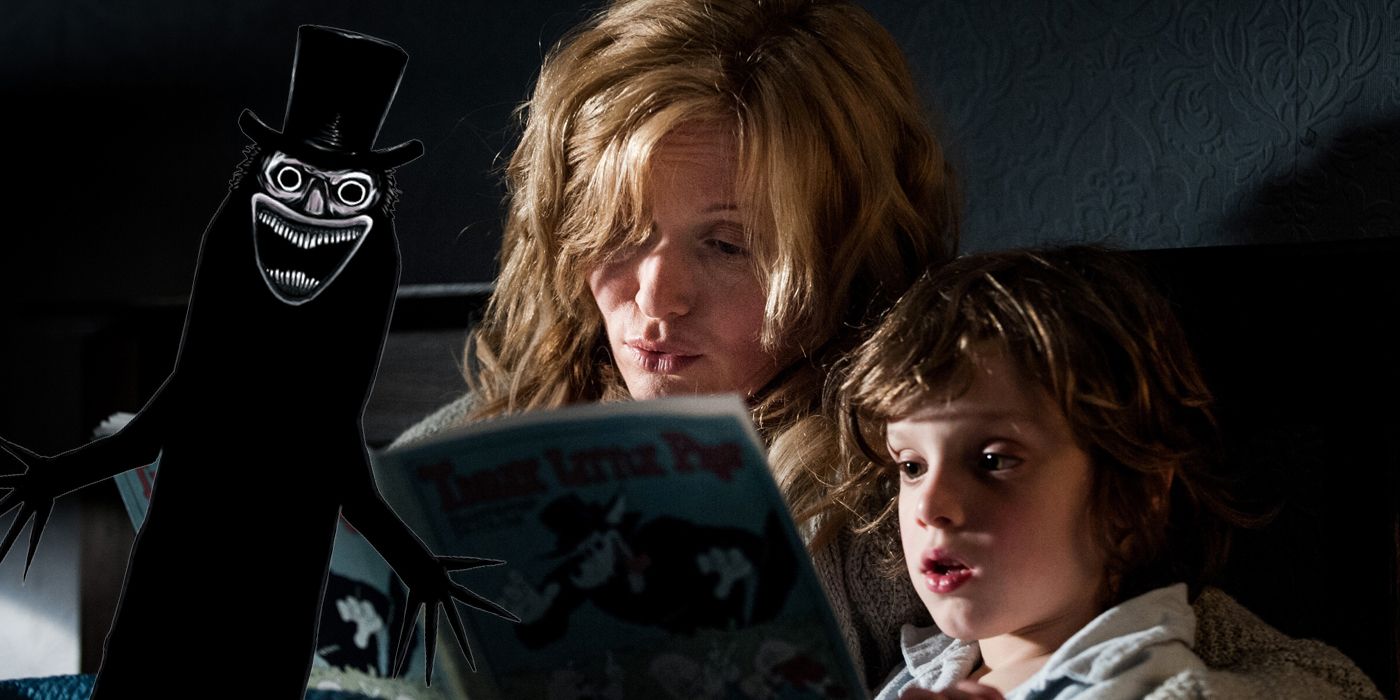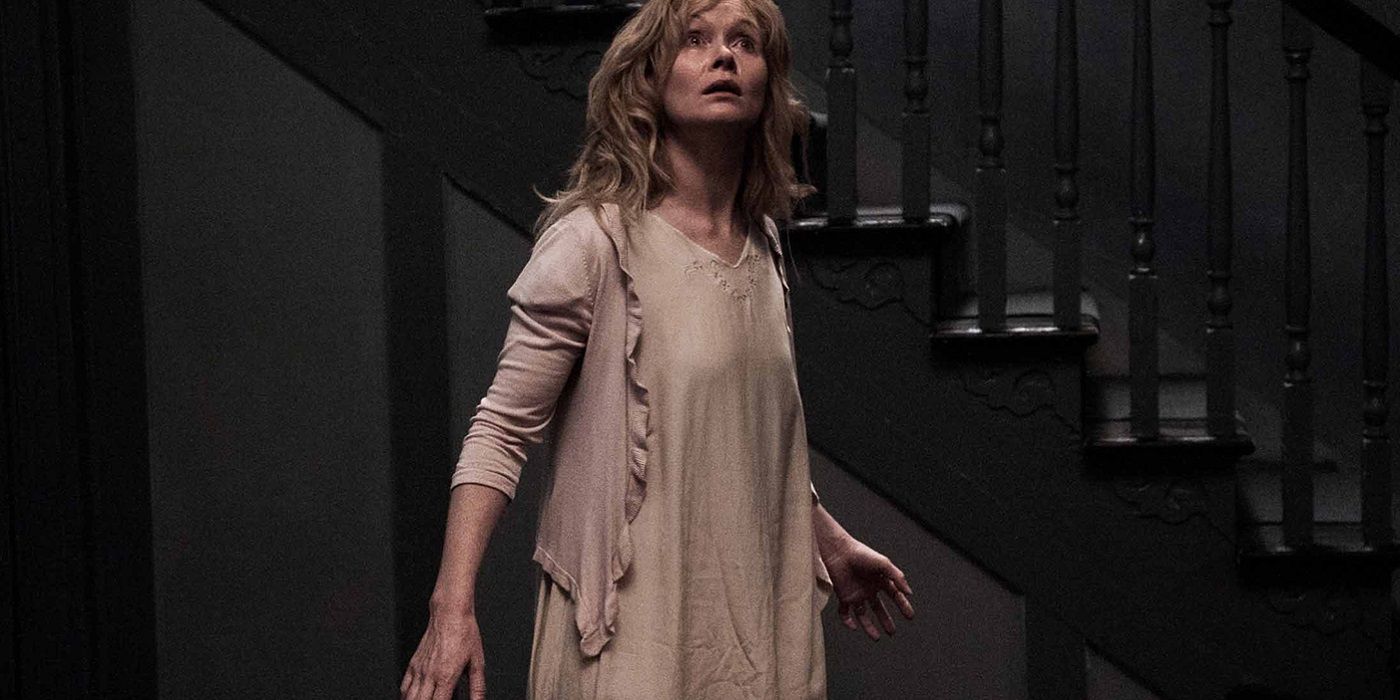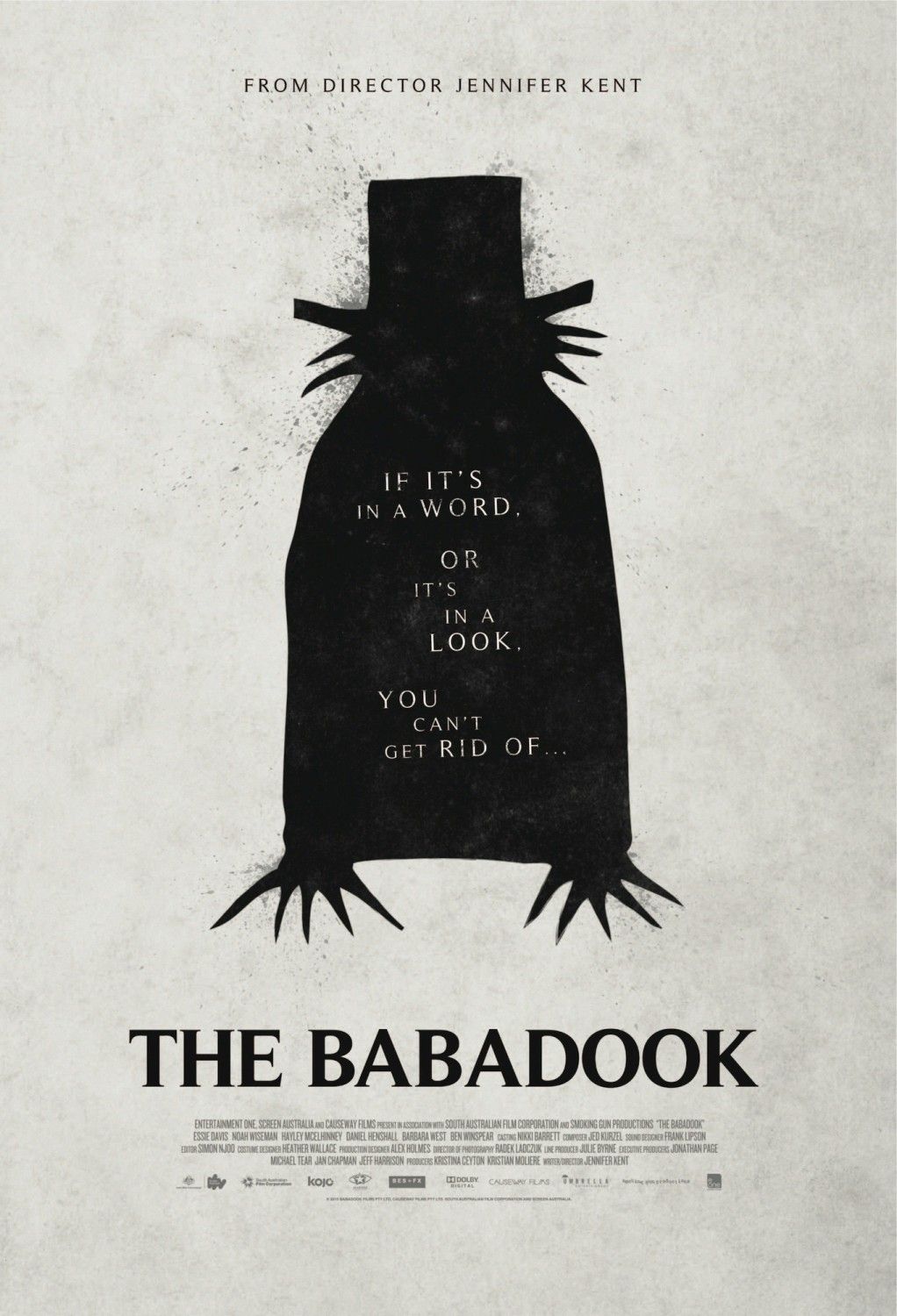Summary
- The Babadook's ending serves as a metaphor for accepting and living with one's inner demons, particularly depression, rather than trying to banish them.
- The film's deeper meaning resonates with LGBTQ audiences, although its director did not initially intend for it to have deliberate LGBTQ themes.
- The Babadook's ambiguous ending has contributed to its status as a horror classic, aligning it with other elevated horror films that explore deeper themes and leave audiences with lingering questions.
Dripping with allegories and hidden themes, there are still a number of fans who want the ending of The Babadook explained. A powerful debut feature for director Jennifer Kent, The Babadook's touches on darker aspects of motherhood, loss, grief, and how mental illness can create monsters all on its own. One of the most original monsters in decades, the Babadook creature design was lauded by fans of the genre. However, the movie ends on a confusing but conclusive note for its titular terror and the family he torments. The story sees single mother Amelia struggle with depression just as her son Samuel becomes obsessed with the horrifying movie monster Mister Babadook, who he fears is real and will come for him.
Eventually, the strange events that happen at home find Amelia resenting her son, who she seems to blame for his father's death without reason. Their tenuous relationship, despite her displaying a protective mother's ferocity, seems to fuel the beast who has taken up residence in their home. This horror movie about mother and son sees them working together to overcome an evil entity in their midst, finding some grounds for personal growth along the way. However, The Babadook movie ending has sparked a fair amount of discussion from fans and critics alike when it takes a sharp turn away from genre films of a similar nature.
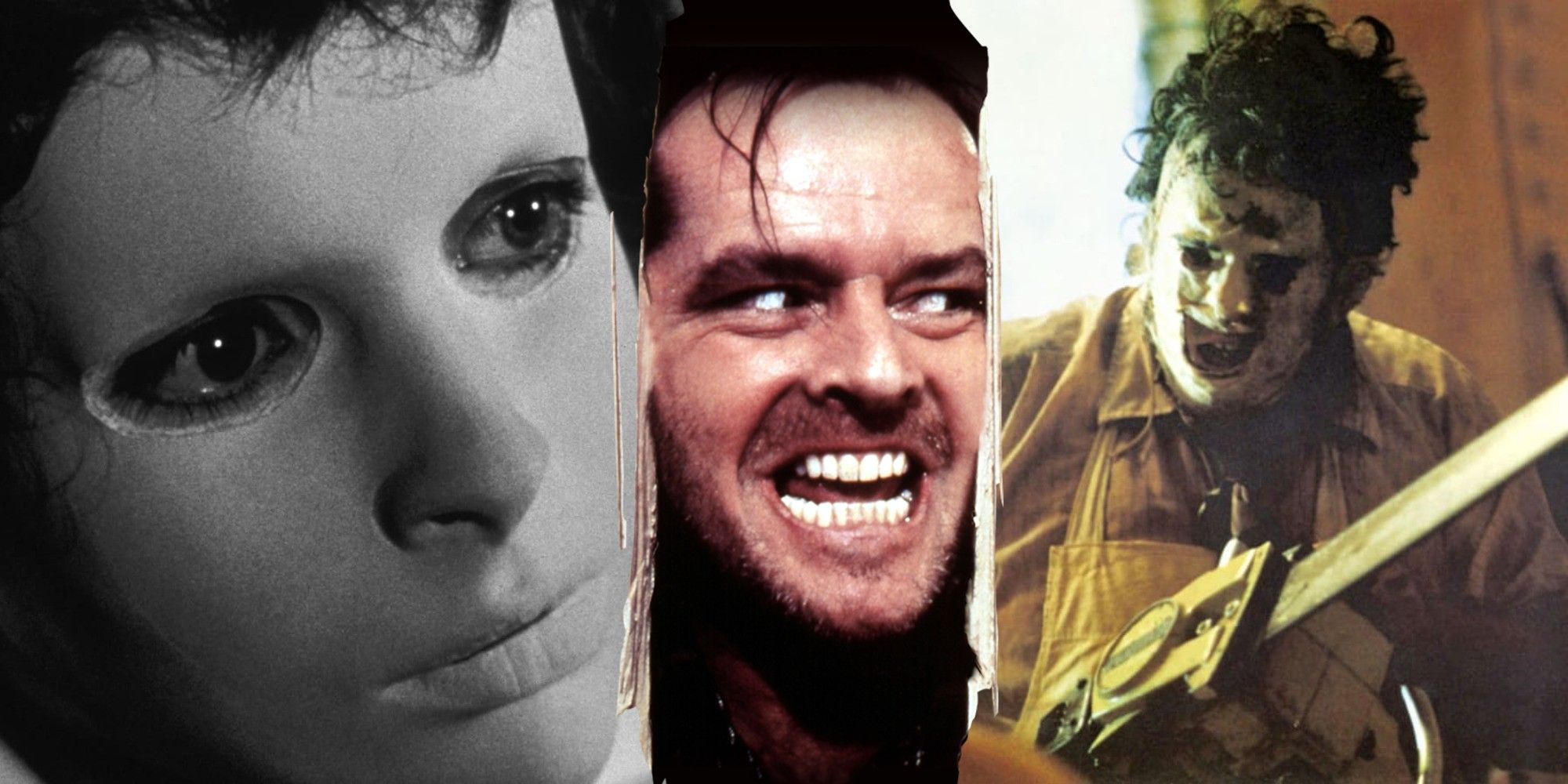
15 Best Horror Movies Of All Time, Ranked
What are the best horror movies of all time? Every fan has their opinion, but these movies have stood the test of time to become certifiable icons.
The Babadook's Hidden Meaning — He Represents Depression
"If it's in a word or in a look, you can't get rid of The Babadook."
This haunting line from the story Sam finds explains the monster's deeper meaning — depression. Since Amelia's husband died in a car crash while he was transporting her to the hospital during labor, she hasn't been able to reconcile many of her emotions surrounding her grief and resentment of being unexpectedly plunged into single motherhood.
Horror movies often explore grief, mental illness, and trauma which connect one's personal, inner demons with physical ones for cinematic scares. Films like Black Swan and Jacob's Ladder were brilliant at depicting a slow descent into madness or conditions like PTSD, and The Babadook movie stands among them as an entry into how well horror can be used as a backdrop for deeper psychological issues.
What The Ending Of The Babadook Means
Since The Babadook meaning is to anthropomorphize and represent Amelia's unchallenged grief and depression, what does that say about the meaning of The Babadook's ending? After her final confrontation with the Babadook, Amelia locks him in the basement. As the story says, you can't get rid of Mister Babadook, so she and Sam instead are forced to allow him to take up residence in their home.
She brings him earthworms to eat, tending to his basic needs as she repairs her relationship with her son. Like Stephen King adaptation Shining Vale, The Babadook ending is a commentary on how people who struggle with mental illness — especially depression — often have to live with their inner demons and hardships by trying to keep them at bay instead of extinguishing them once and for all. This is the deeper The Babadook meaning, that overcoming one's demons often means finding ways to endure them rather than expel them.
WHERE TO WATCH: Stream The Babdook on Hulu
Does The Babadook Have A Hidden LGBTQ Meaning Or Themes?
The Babadook has been embraced as an LGBTQ icon, with the story's theme of embracing uncomfortable emotions resonating with queer audiences. It's led many to wonder if there are deliberate LGBTQ themes or a hidden meaning/message around queerness in The Babadook. It's certainly easy to draw parallels between Amelia's mental health struggles and many experiences LGBTQ viewers have. Surprisingly though, creating an iconic piece of LGBTq cinema wasn't Jennifer Kent's plan when she made The Babadook.
For her part, Jennifer Kent found Mister Babadook's sudden status as a queer icon surprising but incredibly positive. Speaking to EW in 2019, she had this to say on her horror creations resurgence as a mascot for the LGBTQ community "I’m still trying to work that one out… It’s quite perplexing, I feel it’s really quite beautiful, but I still have no idea why.” While the interpretations of LGBTQ meaning in The Babadook may not have been Jennifer Kent's original intention, they still speak for the richness of the central metaphor of The Babadook's ending.
Other viewers have found The Babadook's themes of trying to suppress hidden darkness relevant to their experience or identity, even outside the LGBTQ community. Some autistic viewers and family members have empathized with the central characters' attempts at maintaining normalcy by burying elements of the self that they are scared of, a connection strengthened by Sam displaying autistic traits such as his obsessions and social difficulties.
What The Babadook Meaning Is For Director Jennifer Kent
Ultimately, The Babadook meaning is that issues such as depression and grief have to be dealt with through acceptance rather than by attempting to totally banish negative thoughts or emotions. In an interview (via The Guardian), The Babadook director Jennifer Kent drew on her experience working with Danish arthouse director Lars von Trier to create a domestic atmosphere full of dread, mirroring Amelia's depression. She describes the purpose of the film as tackling difficult themes:
"I wanted to talk about the need to face the darkness in ourselves and in our lives. That was the core idea for me, to take a woman who’d really run away from a terrible situation for many years and have to face it. The horror is really just a byproduct.”
In the story of The Babadook, Amelia's depression stems from the death of her husband, but it also resonates with experiences of post-partum depression and other types of mental health issues. Similarly, Sam's fascination with the monster reflects the difficult experience of encountering death and adult troubles for the first time as a child, similar to It's Pennywise the Clown. All of Amelia and Sam's efforts to suppress the Babadook seem to only strengthen it, demonstrating how grief and other negative emotions must be valued rather than entirely suppressed if one is to truly move forward.
Why The Babadook's Ending Is Perfect And Never Needs a Sequel
The Babadook was released in 2014. Almost a decade later there's still no sequel, despite calls for one from some fans. However, Jennifer Kent, the Australian filmmaker behind the movie, has been right not to make a follow-up. The Babadook is one of those rare movies that got the ending completely right with almost zero legitimate criticisms. There was closure, it felt satisfactory, and it avoided any needless cliffhanger teases.
There are no plans for a Babadook 2, and most audiences and critics maintain it should stay that way. The understanding that developed between monster and victim at the ending was poignant, but a sequel would mean that the peace Amelia made with the Babadook didn't last. Since the whole movie is a metaphor for depression and learning to accept and live with those demons, spinning The Babadook out into a horror franchise would irreparably cheapen the movie's ending and central meaning.
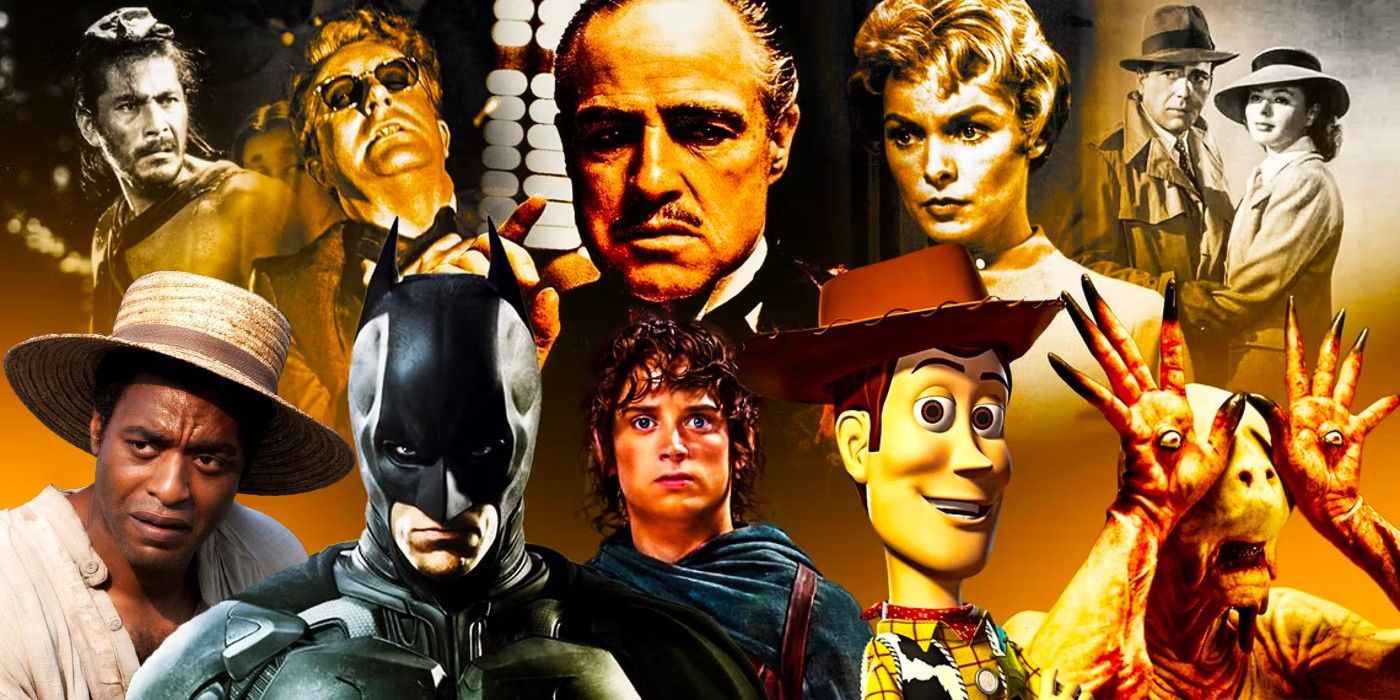
The 55 Best Movies Of All Time
Screen Rant breaks down the best movies of all time, from old classics to modern masterpieces across multiple genres of cinema.
The Babadook Ending Is Part Of Its Legacy
While there are still some who would like the ending of The Babadook explained in a more concrete way within the movie, it has also helped to cement the movie's reputation as one of the latest horror classics. The movie offered memorable scares and a new iconic horror movie monster, but it also dealt with heavier themes and left the audience on a more ambiguous note rather than seeing the heroes definitively win or the killer rise again for a final scare. Similar to the ending of It Follows, The Babadook left audiences with questions to ponder in the final moments that perhaps deepened the movie and added more discomfort than if the ending was more straightforward.
Such storytelling in the genre helped The Babadook become one of the defining movies of the so-called "elevated horror" movement which includes It Follows, The Witch, and Get Out. These movies were seen as taking the genre to a higher art form and earning critical respect with their deeper themes. Scream 2022 even references The Babadook directly as a favorite of the new generation of horror movie as Tara Carpenter tells Ghostface in the movie's opening scene. The reference is brought back at the end after Tara kills one of the killers and quips "I still prefer The Babadook." The questions left at the end of The Babadook might turn off some but it has also allowed it to grow into a modern horror masterpiece in the eyes of many.



